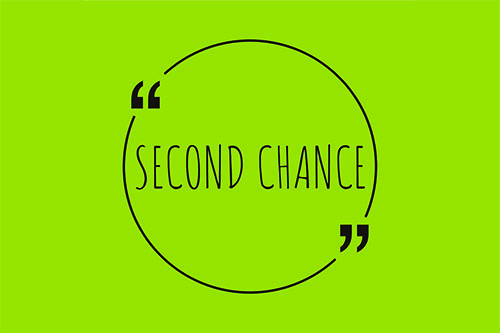 Diversity and inclusion have been hot button issues for employers for several years now. Most employers look at things like sex, race, self-identification, etc. There is one group of people that is too often left out of the discussion and employment practices, and that is the group of people who need a second chance.
Diversity and inclusion have been hot button issues for employers for several years now. Most employers look at things like sex, race, self-identification, etc. There is one group of people that is too often left out of the discussion and employment practices, and that is the group of people who need a second chance.
These days, when so many employers are struggling to find employees, it is worth looking at people who want so much to work. This is a good time to look at hiring practices and guidelines that may be outdated, such as not considering people with crimes related to marijuana on their records. This stance could not only cause employers to miss out on hardworking, loyal employees, it could also put employers are risk of breaking the law as more states and/or localities put fair chance hiring legislation into place.
Background checking remains an important part of the hiring process. Employers just have to make sure they are using the information in the way that is most appropriate for the position and location for which the subject of the check is being considered.
The state of Michigan sees the value of second chances so much so, that “Clean Slate” legislation was enacted in April of 2021, which includes:
- Creating an automatic process for setting aside eligible misdemeanors after seven years and eligible non-assaultive felonies after 10 years, to be implemented on or after April 2023 (courts and law enforcement authorities have two years to work on the requirements to put this into place).
- Expanding the number and revising the types of felonies and misdemeanors eligible to be set aside by application.
- Revising the waiting periods before being eligible to apply for a set aside.
- Treating multiple felonies or misdemeanor offenses arising from the same transaction as a single felony or misdemeanor conviction, provided the offenses happened within 24 hours of one another and are not assaultive crimes, or involves possession or use of a dangerous weapon, or is a crime that carries penalty of 10 or more years in prison.
- Expanding set aside eligibility to various traffic offenses.
- Allowing a person to petition to set aside one or more marijuana offenses if the offense would not have been a crime if committed after the use of recreational marijuana by adults became legal in the state.
Many employers, such as GM and JP Morgan Chase have put hiring initiatives into place which will assist people who have the qualifications for a job to get past the roadblock of their criminal record. Chase, along with 29 other major, national organizations, started the Second Chance Business Coalition (SCBC). As stated on the SCBC website, “The Second Chance Business Coalition promotes the benefits of second chance employment and provides employers with resources to hire and provide career advancement to people with criminal records.”
There are many smaller organizations, such as the Capuchin Soup Kitchen in Detroit, Michigan, who have started businesses for the purpose of helping those who need a second chance. Their programs help those who have been in prison or who have completed substance abuse programs. As part of their program, the participants not only work to help themselves, but they also help those who are new to the program.
There are many companies here in Michigan who are already giving people a second chance and there are several websites that list those companies and opportunities. Perhaps it’s time for your company to consider people who have paid their debt to society and are looking for an opportunity to work as a part of your diversity and inclusion program.
Sources: courts.michigan.gov; inc.com; businesswire.com; cskdetroit.org; PBSA